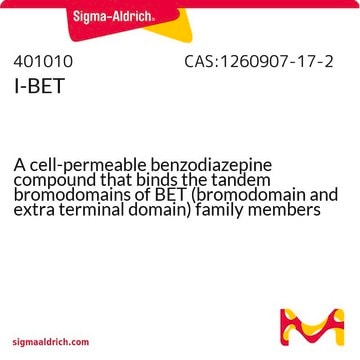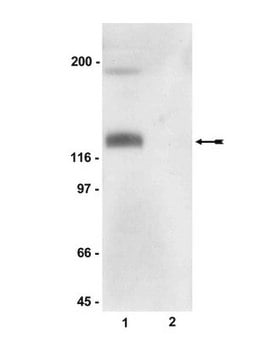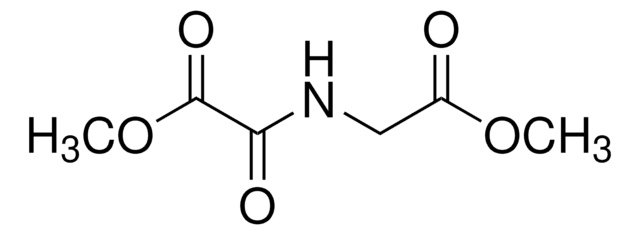Fontos dokumentumok
SML0701
GSK-J4
≥98% (HPLC)
Szinonimák:
Ethyl 3-((6-(4,5-dihydro-1H-benzo[d]azepin-3(2H)-yl)-2-(pyridin-2-yl)pyrimidin-4-yl)amino)propanoate
About This Item
Javasolt termékek
Minőségi szint
Teszt
≥98% (HPLC)
form
powder
tárolási körülmény
desiccated
szín
white to beige
oldhatóság
DMSO: 20 mg/mL, clear
tárolási hőmérséklet
2-8°C
SMILES string
O=C(OCC)CCNC1=CC(N2CCC(C=CC=C3)=C3CC2)=NC(C4=CC=CC=N4)=N1
InChI
1S/C24H27N5O2/c1-2-31-23(30)10-14-26-21-17-22(28-24(27-21)20-9-5-6-13-25-20)29-15-11-18-7-3-4-8-19(18)12-16-29/h3-9,13,17H,2,10-12,14-16H2,1H3,(H,26,27,28)
Nemzetközi kémiai azonosító kulcs
WBKCKEHGXNWYMO-UHFFFAOYSA-N
Alkalmazás
Biokémiai/fiziológiai hatások
To learn about other SGC chemical probes for epigenetic targets, visit sigma.com/sgc
Tulajdonságok és előnyök
Egyéb megjegyzések
kapcsolódó termék
Tárolási osztály kódja
11 - Combustible Solids
WGK
WGK 3
Lobbanási pont (F)
Not applicable
Lobbanási pont (C)
Not applicable
Analitikai tanúsítványok (COA)
Analitikai tanúsítványok (COA) keresése a termék sarzs-/tételszámának megadásával. A sarzs- és tételszámok a termék címkéjén találhatók, a „Lot” vagy „Batch” szavak után.
Már rendelkezik ezzel a termékkel?
Az Ön által nemrégiben megvásárolt termékekre vonatkozó dokumentumokat a Dokumentumtárban találja.
Az ügyfelek ezeket is megtekintették
Cikkek
We offer a variety of small molecule research tools, such as transcription factor modulators, inhibitors of chromatin modifying enzymes, and agonists/antagonists for target identification and validation in gene regulation research; a selection of these research tools is shown below.
Related Content
Explore protein pathway analysis through chemical library screening, investigating protein interactions, and modulating signaling pathways with small molecules.
Tudóscsoportunk valamennyi kutatási területen rendelkezik tapasztalattal, beleértve az élettudományt, az anyagtudományt, a kémiai szintézist, a kromatográfiát, az analitikát és még sok más területet.
Lépjen kapcsolatba a szaktanácsadással
















